News
N90bn probe: Ex-Hajj commission chair leaves EFCC custody
Published
8 months agoon
By
Ekwutos Blog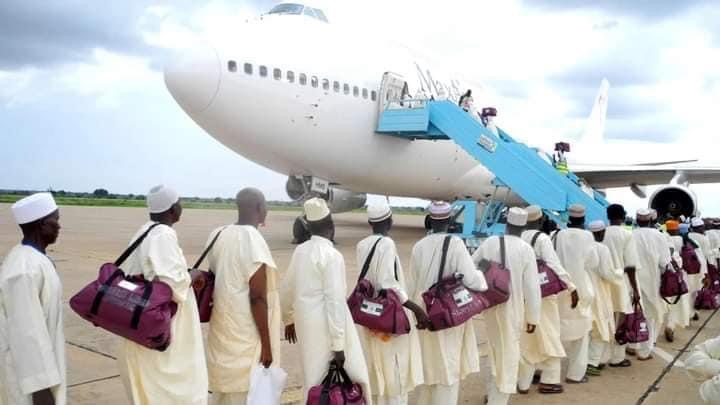
The Economic and Financial Crimes Commission has released the sacked chairman of the National Hajj Commission of Nigeria, Jalal Arabi, and the commission’s secretary, Abdullahi Kontagora, on bail.
Arabi and Kontagora were detained over alleged illegal withdrawal and the mismanagement of the N90bn 2024 Hajj intervention fund.
They were, however, unable to meet their bail conditions and stayed in EFCC’s custody for five days.
But speaking with our correspondent on Wednesday, a source familiar with the matter stated that Arabi and Kontagora had met their bail conditions.
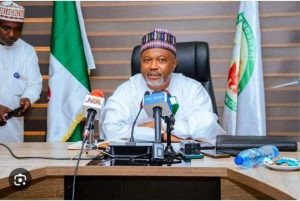
You may like


“Tonight the Pope’s remains will be placed in an open coffin.


JUST-IN: President Tinubu Allegedly Had a Secret Meeting With Rivers State Governor, Sim Fubara and The 27 Pro-Wike Assembly Members in London
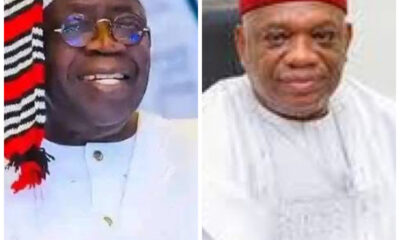

PRESIDENT TINUBU CELEBRATES SENATOR ORJI UZOR KALU AT 65
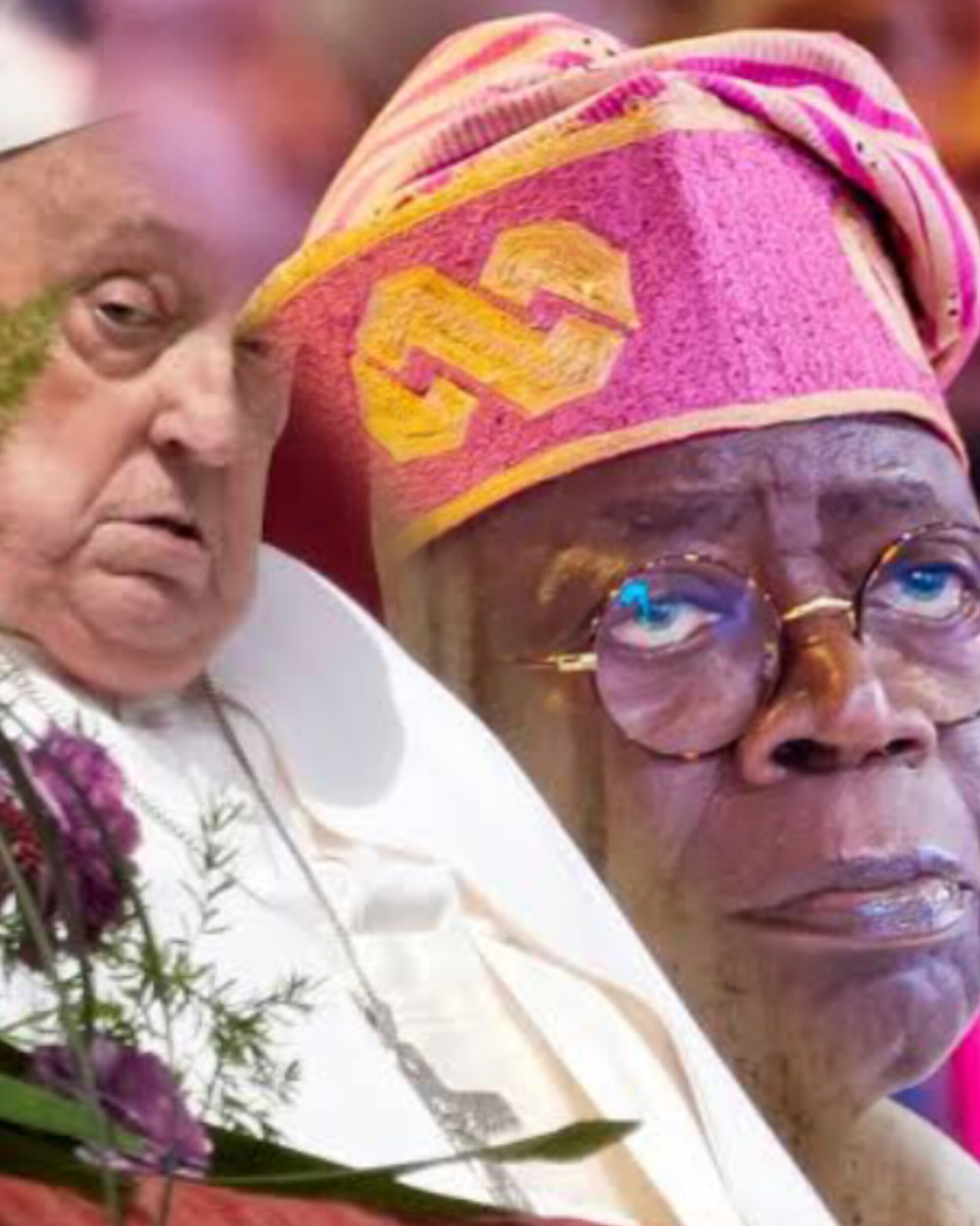

PRESIDENT TINUBU’S STATEMENT ON THE PASSING OF HIS HOLINESS POPE FRANCIS
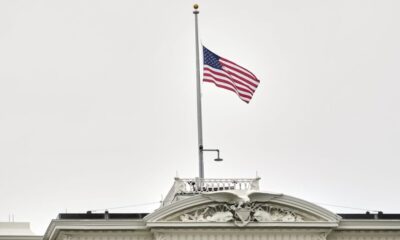

Trump orders American flags flown at half-mast to honour Pope Francis
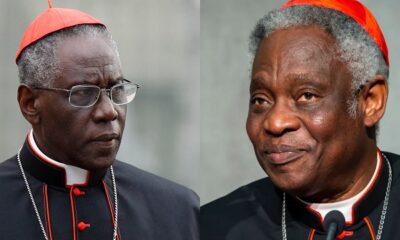

Meet African Cardinals who could be the next Pope
News
“Tonight the Pope’s remains will be placed in an open coffin.
Published
1 minute agoon
April 21, 2025By
Ekwutos Blog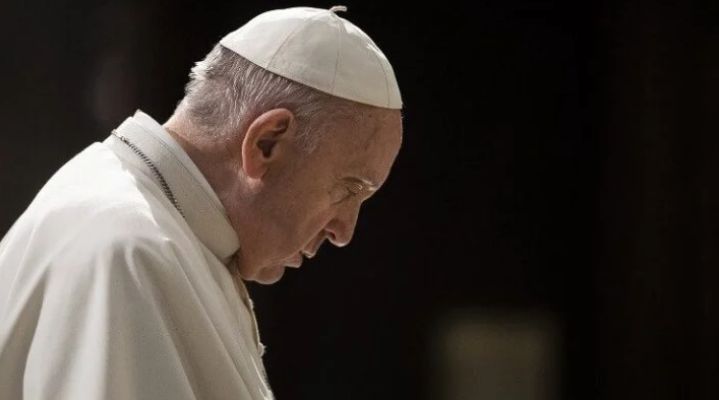
“Tonight the Pope’s remains will be placed in an open coffin.
From Wednesday they will be laid in St Peter’s to allow all to pay their respects.
Unlike his predecessors he will not be buried in the Vatican but at St Mary Major’s Basilica”.
Fr Kelvin Ugwu.
News
PRESIDENT TINUBU’S STATEMENT ON THE PASSING OF HIS HOLINESS POPE FRANCIS
Published
1 hour agoon
April 21, 2025By
Ekwutos Blog
STATEHOUSE PRESS RELEASE
PRESIDENT TINUBU’S STATEMENT ON THE PASSING OF HIS HOLINESS POPE FRANCIS
Today, with a heavy heart, I join the Catholic faithful and Christians worldwide in mourning the passing of Pope Francis, a humble servant of God, tireless champion of the poor, and guiding light for millions. His passing, coming just after the celebration of Christ’s Resurrection, is a sacred return to his Maker at a time of renewed hope for Christians.
His Holiness served the Church and the Master of the Church until the end. In 2013, he stepped onto the global stage with a message of mercy, urging us to see the face of Christ in the marginalised, the refugees, the migrants, and the forgotten.
He challenged the powerful to act with justice, called nations to welcome the stranger, and reminded us that our common home—this Earth—is a gift we must protect for future generations.
He was an instrument of peace who deeply embodied the message of Christ: love for God and love for humanity. In a time of division, he built bridges between faiths and the rich and the poor.
He was a steadfast advocate for the developing world, where he consistently spoke against economic injustice and ceaselessly prayed for peace and stability in troubled regions.
His encyclicals were not only doctrinal and seminal but also timely and relevant. Through his pastoral letters, the Pope offered spiritual clarity and hope in an increasingly complex world. He charted a path of renewal for all humanity through his words and deeds.
In my 2025 Easter Message, I joined the Christian faithful in thanksgiving for the convalescing Pontiff. I was happy to watch his appearance to deliver the traditional Easter Sunday blessing in St. Peter’s Basilica.
Alas, the Lord called him home a day after, making the world lose its most trenchant voice for justice and action against climate change. May the good Lord, whom he served with all his might, receive him into His eternal bosom.
As we mourn the late Pontiff, let us also celebrate his legacy. Let us honour him not with words alone but with action: by lifting those who are down, healing our communities, and defending the dignity of every person.
On behalf of the government and the people of Nigeria, I extend condolences to the Catholic Church, the global Catholic community, and the Christian faithful.
May God Almighty grant His beloved servant eternal rest.
PRESIDENT BOLA AHMED TINUBU,
FEDERAL REPUBLIC OF NIGERIA,
ABUJA
April 21, 2025
News
Murder of First Class University Student: Police complete extradition of fugitive
Published
8 hours agoon
April 21, 2025By
Ekwutos Blog
The police, yesterday, said they have successfully completed the extradition of Benjamin Nnayereugo, better known as Killaboi, from Doha, Qatar to Nigeria.
The fugitive, who had been on the run for the alleged murder of Miss Augusta Onuwabhagbe, was returned to the country in the early hours of Saturday, April 19, 2025, through the coordinated efforts with the Ministry of Justice, INTERPOL National Central Bureau, NCB, Force Headquarters in Abuja and the Qatari Judicial Authorities.
Force Public Relations Officer, ACP Muyiwa Adejobi, in a statement, said: ‘’The extradition followed a petition from the family of the deceased, submitted through their legal representatives dated September 29, 2024. The matter was assigned to INTERPOL NCB Abuja for investigation. Investigations revealed that the suspect, Benjamin Best Nnayereugo, murdered Miss Onuwabhagbe, a 21-year-old First Class student of Lead City University, Ibadan, at his residence located at 24A, Abiola Apooyi Street, Oral Estate, Ajah, Lagos, on July 13, 2023.
“After committing the crime, he fled Nigeria and later released an online video purporting to confess to the act, a deceptive strategy to derail investigative efforts. ýFollowing his declaration as wanted by the NPF Lagos State Criminal Investigation Department, SCID, on October 13, 2023, an INTERPOL Red Notice was issued for his global apprehension.
“He was initially arrested in Freetown, Sierra Leone, on October, 20, 2023, under the false identity Kanu Princeton Samuel, but escaped custody during a prison break on November 26, 2023, in Feeetown. ýFurther intelligence gathering revealed that the suspect continued to evade law enforcement, traversing multiple regions including West Africa, East Asia and the Middle East, under forged identities before eventually relocating to Doha, Qatar on January 24, 2025.
“At Doha, he was Operating under the alias Toure Abdoulaye with a fraudulent Guinean passport, he secured illegal employment and concealed his identity. ýThrough robust international cooperation and the use of advanced biometrics, INTERPOL NCB Abuja, in collaboration with INTERPOL NCB Doha, confirmed his identity, leading to his arrest by Qatari authorities in February 2025.
“An official extradition request, processed via the Federal Ministry of Justice, Abuja, was subsequently approved by the Qatari judicial authorities, resulting in his repatriation to Nigeria. ýIGP Kayode Egbetokun while recognising the strength in the synergy amongst nations to curb trans-border crimes, commended the diligence of INTERPOL NCB Abuja and extended sincere appreciation to the Attorney-General of the Federation and Minister of Justice, the Government of Qatar, INTERPOL NCB Doha, and the Nigerian Embassy in Qatar for their invaluable collaboration in securing the fugitive’s return. The Inspector-General of Police further assured the general public of the Nigeria Police Force’s commitment to ensuring that the suspect faces diligent prosecution, as part of the NPF’s dedication to justice and the safety of all Nigerians.”
Meanwhile, human rights lawyer, Femi Falana, SAN, has urged the Attorney-General of Lagos State, Mr Lawal Pedro, SAN, to fast-track the prosecution of the suspect
Falana also thanked the Federal Government for collaborating with Falana and Falana’s Chambers in his successful extradition.
He said: “We are particularly indebted to the mother of the deceased, Mrs Okonye Nneji, who furnished us with vital information on the movements of the suspect since he escaped from Nigeria two years ago. This is a challenge to all Nigerians to always pursue the cause of justice in order to end impunity in the country. Having confirmed that the Lagos State Criminal Investigation Department has completed an investigation into the cold murder of Miss Onuwabhagbe, we hereby call on the Attorney-General of Lagos State, Mr. Lawal Pedro, SAN, to fast-track the prosecution of the suspect.”

“Tonight the Pope’s remains will be placed in an open coffin.

JUST-IN: President Tinubu Allegedly Had a Secret Meeting With Rivers State Governor, Sim Fubara and The 27 Pro-Wike Assembly Members in London

PRESIDENT TINUBU CELEBRATES SENATOR ORJI UZOR KALU AT 65
Trending

 Trending6 months ago
Trending6 months agoNYA demands release of ‘abducted’ Imo chairman, preaches good governance
- Business6 months ago
US court acquits Air Peace boss, slams Mayfield $4000 fine

 Politics6 months ago
Politics6 months agoMexico’s new president causes concern just weeks before the US elections
- Entertainment6 months ago
Bobrisky transferred from Immigration to FCID, spends night behind bars
- Entertainment6 months ago
Bobrisky falls ill in police custody, rushed to hospital

 Politics6 months ago
Politics6 months agoRussia bans imports of agro-products from Kazakhstan after refusal to join BRICS

 Politics6 months ago
Politics6 months agoPutin invites 20 world leaders
- Politics1 year ago
Nigerian Senate passes Bill seeking the establishment of the South East Development Commission.

